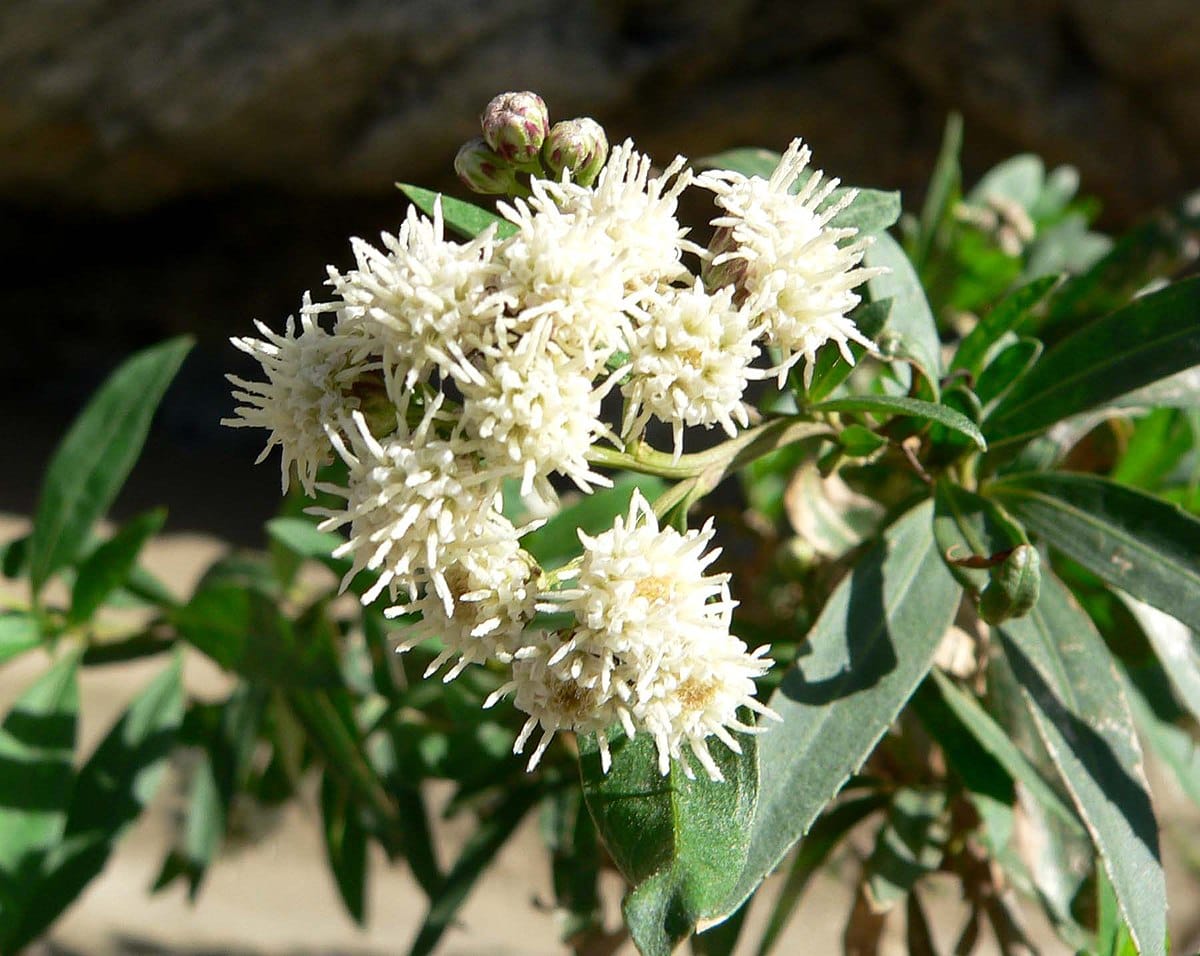1. Introducing Baccharis
Baccharis (Baccharis trimera), also known as 'Carqueja' or 'Baccharis articulata', is a plant native to South America, particularly prized in phytotherapy for its beneficial effects on the liver, digestion and metabolism. It is traditionally used in Brazil and Argentina for its purifying and antioxidant properties.
2. Origin and habitat
Baccharis is a perennial plant belonging to the Asteraceae family. It grows mainly in meadows and wetlands in Brazil, Argentina and Paraguay. Very hardy, it adapts well to poor soil and tropical climates.
3. Composition and active ingredients
Baccharis is rich in flavonoids, saponins, diterpenes, phenolic acids and tannins. Its main active ingredients are :
- Flavonoids powerful antioxidants that protect cells from oxidative stress.
- Saponins known for their depurative and diuretic properties.
- Diterpenes which help the liver to function properly.
- Phenolic acids with antimicrobial and digestive properties.
4. Benefits and properties
Detoxifying and protecting the liver
- Stimulates liver function and helps eliminate toxins.
- Protects the liver from external aggressors (alcohol, medication, pollution).
- Potential hepatoprotector against liver diseases such as hepatic steatosis.
Improved digestion
- Promotes the production of bile, essential for fat digestion.
- Helps relieve digestive problems (bloating, spasms, indigestion).
- Has anti-inflammatory properties for the stomach and intestines.
Antioxidant and anti-inflammatory action
- Combats oxidative stress and slows down cell ageing.
- Has a protective effect on cells against free radicals.
Draining and diuretic effect
- Stimulates the elimination of toxins by the kidneys.
- Can be useful in slimming cures by helping to reduce water retention.
Metabolic support and potential anti-diabetic effect
- Some studies suggest that Baccharis may help to better regulate blood sugar levels.
- Helps curb cravings and improves carbohydrate digestion.
5. Use as a food supplement
Baccharis is available in several forms:
- Infusion Brew 1 to 2 g of dried leaves in 250 ml of hot water for 10 minutes, 2 to 3 times a day.
- Liquid extract A few drops diluted in a glass of water before meals.
- Capsules or tablets Generally dosed at between 300 and 600 mg a day.
It is advisable to take courses of treatment lasting 2 to 4 weeks to optimise the benefits, particularly during periods of detoxification.
6. Precautions for use and contraindications
- Not recommended for pregnant or breast-feeding women.
- Avoid if you have low blood pressure or are taking diuretic medication (risk of dehydration).
- May interact with certain drug treatments, particularly those related to the liver and blood sugar levels.
- Prolonged use should be supervised by a healthcare professional.
7. Suggested associations
- For liver detox Desmodium, Milk thistle.
- For the draining effect Dandelion, Birch.
- For digestive comfort Fennel, ginger.











